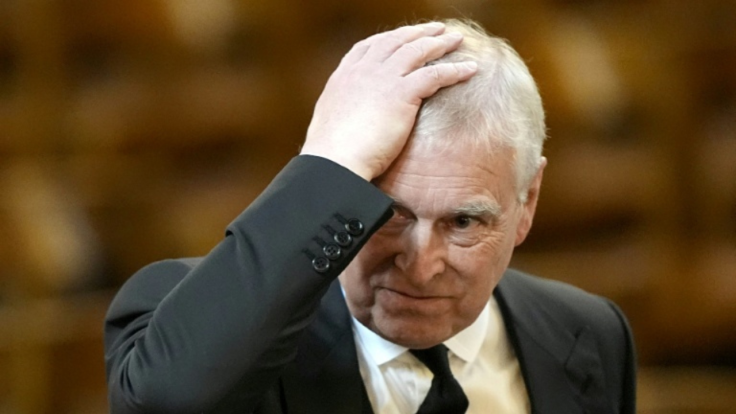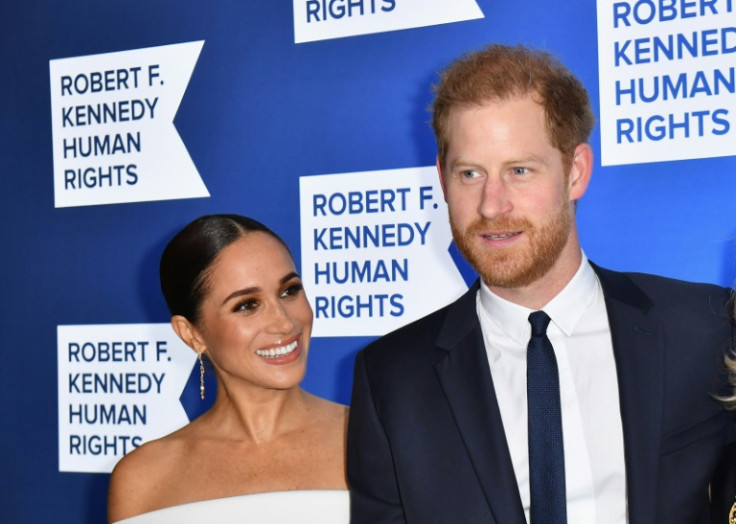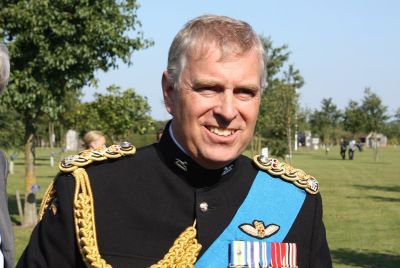What Do You Call Prince Andrew Now that His Royal Titles Have Been Stripped? 'New Name' Revealed
Many now compare Meghan and Harry's exit from royal duties with Andrew's fall.

The day that Prince Andrew has been dreading for so long is officially here. Buckingham Palace has confirmed that King Charles III has formally stripped his younger brother of his princely status, titles, and remaining honours, marking a historic and deeply symbolic moment for the modern monarchy.
Hence, Prince Andrew is no longer a member of the royal family and is now a private citizen of the United Kingdom. He has a new name, a new address and a new set of opinions and criticism coming his way from all over his world.
From Prince to Private Citizen
Prince Andrew will now be known simply as Andrew Mountbatten-Windsor, following the official removal of his royal styles and privileges. The decision, described by the Palace as a 'necessary censure,' comes amid ongoing public backlash over his association with convicted sex offender Jeffrey Epstein and long-standing allegations made by Virginia Giuffre, which Andrew has consistently denied.
Buckingham Palace stated that Andrew is required to surrender the lease on Royal Lodge, a 30-room residence in Windsor Great Park, where he has lived for over two decades. He will instead move to private accommodation within the Sandringham Estate in Norfolk, a move understood to be funded privately by the King.

Public Reaction and Divided Opinion
Reactions to the decision have flooded social media and major news outlets. Virginia Giuffre's family, speaking to the BBC, called it a 'victory unprecedented in history.' Her brother, Sky Roberts, said, 'She was just an ordinary American girl who brought down a British prince. We are proud of her, but there must still be a proper investigation.'
Others, including MP Rachael Maskell, said the move reflects the public's demand for accountability. 'Eighty per cent of the public wanted these titles removed. There's relief across the country that it has now been done.'
Even supporters of the monarchy have described the step as both 'right' and 'long overdue.'
This also marks a rare step in the history of the British Monarchy.
Historians note that stripping a royal of princely status is extraordinarily rare. The last comparable event occurred in 1919, when Ernest Augustus, Duke of Cumberland, lost his titles under the Titles Deprivation Act following the end of World War I.
Royal historian Sarah Gristwood told the BBC that this decision 'shows how seriously the Palace takes the reputational threat to the monarchy.'
Comparisons to Meghan And Harry's Exit

Public comments online reveal an unexpected shift in tone. While Meghan Markle and Prince Harry have often drawn criticism, many now contrast their exit from royal duties with Andrew's fall.
'Everyone talks about Meghan and Harry losing their titles... but what crimes have they been accused of?' wrote one Facebook commenter. 'At least they left by choice — Andrew had to be forced out.'
Another viral comment read, 'Even Meghan looks better now — at least she walked away with her dignity', and 'Thank goodness and now for Harry and Meghan!'
How Will Life Look for 'Civilian' Andrew?
According to royal correspondents, Andrew's removal marks the effective end of his public life. He will no longer represent the Crown, attend official events, or use the style 'His Royal Highness.' His daughters, Princess Beatrice and Princess Eugenie, retain their titles.
The Palace's statement concluded with an unambiguous message of support for victims of abuse: 'Their Majesties wish to make clear that their thoughts and utmost sympathies have been, and will remain with, the victims and survivors of any and all forms of abuse.'
As Andrew prepares to move into quiet seclusion on the Sandringham Estate, royal watchers say King Charles is trying to 'draw a line' under one of the most damaging chapters in royal history.
© Copyright IBTimes 2025. All rights reserved.


















